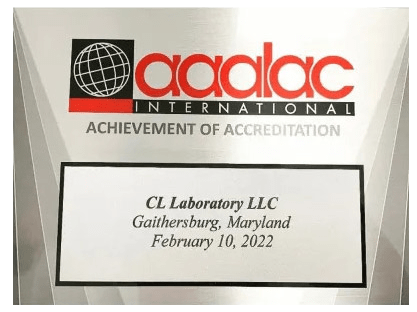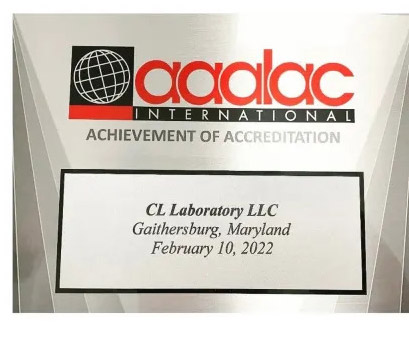Peer Reviewed Publications

Meet The Founder
Dr. Zheqing Cai, former cardiothoracic surgeon at Peking University and NIH-funded principal investigator at Johns Hopkins University Medical School, founded CL Laboratory, LLC in 2013. This leading cardiovascular preclinical research company has rapidly expanded in both size and expertise, driven by a culture of excellence, efficiency, and ethics. With a strong focus on client satisfaction, CL Laboratory attracts clients worldwide, who repeatedly return for their next projects. Alongside serving clients, the company conducts in-house research to produce publishable results, advancing the field of cardiovascular medicine. Partner with Dr. Zheqing Cai and CL Laboratory for unparalleled expertise, exceptional client satisfaction, and groundbreaking contributions to cardiovascular research.
“It is our mission to provide reliable pre-clinical services to aid in the discovery of novel treatments for cardiovascular disease.”
Peer Reviewed Publications (*: corresponding author)
Cai ZP, Luo W, Zhan H, Semenza GL. Hypoxia-inducible factor 1 is required for remote ischemic preconditioning of the heart. Proc Natl Acad Sci U S A. 2013;110:17462-7.
Cai ZP*, Parajuli N, Zheng X, Becker L. Remote ischemic preconditioning confers late protection against myocardial ischemia-reperfusion injury in mice by upregulating interleukin-10. Basic Res Cardiol. 2012;107:277.
Sarkar K, Cai Z, Gupta R, Parajuli N, Fox-Talbot K, Darshan MS, Gonzalez FJ, Semenza GL. Hypoxia-inducible factor 1 transcriptional activity in endothelial cells is required for acute phase cardioprotection induced by ischemic preconditioning. Proc Natl Acad Sci U S A. 2012;109:10504-9.
Parajuli N, Yuan Y, Zheng X, Bedja D, Cai ZP*. Phosphatase PTEN is critically involved in post-myocardial infarction remodeling through the Akt/interleukin-10 signaling pathway. Basic Res Cardiol. 2012;107:248.
Zu L, Zheng X, Wang B, Parajuli N, Steenbergen C, Becker LC, Cai ZP*. Ischemic preconditioning attenuates mitochondrial localization of PTEN induced by ischemia-reperfusion. Am J Physiol. 2011;300:H2177-86.
Zu L, Shen Z, Wesley J, Cai ZP*. PTEN inhibitors cause a negative inotropic and chronotropic effect in mice. Eur J Pharmacol. 2011;650:298-302.
Zu L, Bedja D, Fox-Talbot K, Gabrielson KL, Van Kaer L, Becker LC, Cai ZP*. Evidence for a role of immunoproteasomes in regulating cardiac muscle mass in diabetic mice. J Mol Cell Cardiol. 2010;49:5-15.
Cai ZP*, Shen Z, Van Kaer L, Becker LC. Ischemic preconditioning-induced cardioprotection is lost in mice with immunoproteasome subunit LMP-2 deficiency. FASEB J. 2008;22:4248-57.
Cai Z, Zhong H, Bosch-Marce M, Fox-Talbot K, Wang L, Wei C, Trush MA, Semenza GL. Complete loss of ischaemic preconditioning-induced cardioprotection in mice with partial deficiency of HIF-1 alpha. Cardiovasc Res.2008;77:463-70.
Sullivan JC, Goodchild TT, Cai Z, Pollock DM, Pollock JS. ETA and ETB receptor mediated regulation of NOS1 and NOS3 isoforms in the renal inner medulla. Acta Physiol. 2007;191:329-36.
Yang XP, Mattagajasingh S, Su S, Chen G, Cai Z, Fox-Talbot K, Irani K, Becker LC. Fractalkine upregulates intercellular adhesion molecule-1 in endothelial cells through CX3CR1 and the Jak-Stat5 pathway. Circ Res. 2007;101:1001-8.
Cai Z*, Semenza GL. PTEN activity is modulated during ischemia and reperfusion: involvement in the induction and decay of preconditioning. Circ. Res. 2005;97:1351-9.
Cai Z, Semenza GL. Phosphatidylinositol-3-kinase signaling is required for erythropoietin-mediated acute protection against myocardial ischemia/reperfusion injury. Circulation. 2004;109:2050-3.
Kelly BD, Hackett SF, Hirota K, Oshima Y, Cai Z, Berg-Dixon S, Rowan A, Yan Z, Campochiaro PA, Semenza GL. Cell type-specific regulation of angiogenic growth factor gene expression and induction of angiogenesis in nonischemic tissue by a constitutively active form of hypoxia-inducible factor 1. Circ. Res. 2003;93:1074-81.
Cai Z, Manalo DJ, Wei G, Rodriguez ER, Fox-Talbot K, Lu H, Zweier JL, Semenza GL. Hearts from rodents exposed to intermittent hypoxia or erythropoietin are protected against ischemia-reperfusion injury. Circulation. 2003:108:79-85.




